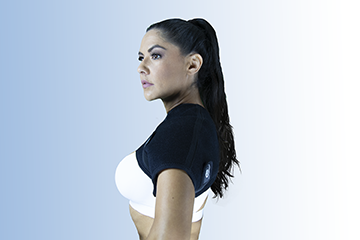
Understanding Rotator Cuff Injuries and Common Shoulder Tears
Share
Understanding Rotator Cuff Injuries and Common Shoulder Tears
Shoulder pain is one of the most common issues for active adults, and a major culprit behind it is a rotator cuff injury. First off, let’s clear up a common pronunciation mistake: it’s rotator cuff, not “rotator cup.” The rotator cuff is a group of four muscles and their tendons that surround the shoulder joint. These muscles include: supraspinatus, infraspinatus, teres minor, and subscapularis which work together to keep your shoulder stable and allow you to lift and rotate your arm. Injuries usually involve one or more of the tendons, with the supraspinatus tendon being the most commonly torn. Damage can range from inflammation (tendonitis) to partial or full tears, especially with age, repetitive motion, or a sudden injury.
Another injury you might hear about is a SLAP tear, which stands for Superior Labrum Anterior and Posterior. This refers to a tear in the top (superior) part of the labrum which is the ring of cartilage that surrounds the shoulder socket (where the biceps tendon attaches). A SLAP tear or lesion can cause deep shoulder pain, popping, or a catching feeling, especially during overhead motion. Unlike a rotator cuff tear, a SLAP tear impacts cartilage, not muscle, but both can happen together and cause similar symptoms.
Certain sports and jobs are more likely to lead to these kinds of shoulder injuries. Overhead sports like baseball (especially pitchers), tennis, swimming,volleyball and weight lifting carry a high risk due to repeated shoulder motion. Occupations like first responders, painting, construction, plumbing, and warehouse work are all big culprits of shoulder injury. Essentially anything that requires lifting or working with your arms above your head will alll put added stress on the shoulder. However,even office workers (desk jockeys) can develop shoulder problems over time due to poor posture or repetitive mouse and keyboard use.
If you're feeling ongoing shoulder pain, especially with overhead movement or while sleeping, it’s worth getting it checked out early. Addressing it with physical therapy, active rest (away from the irritating activity), and simply pain control measures such as OTC anti-inflams and cold therapy can help prevent a minor issue from becoming a major one. For effective at-home relief, check out our ActiveWrap Shoulder Ice Wrap designed to deliver targeted heat and cold compression relief to the shoulder while still allowing you to go about the day to day.